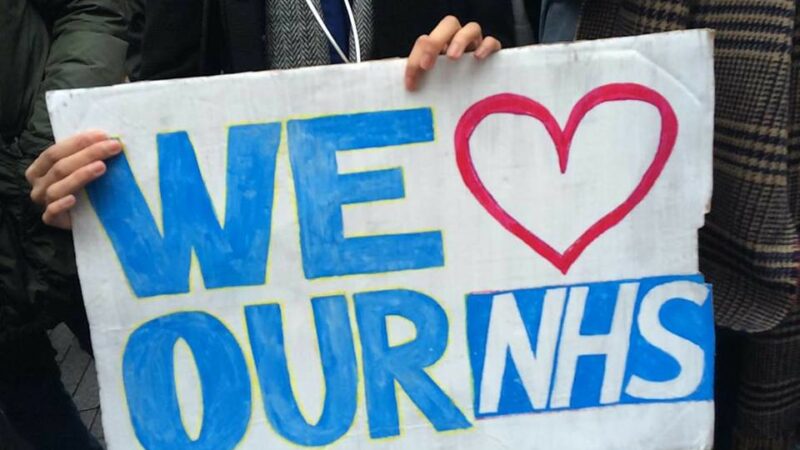Clive Betts MP looks at the state of public services, and asks: who will pick up the tab of this pandemic?

The UK looks set to exceed the government’s expectation of 20,000 deaths. Meanwhile, UK GDP is forecast for a hit in the region of 14-24%. The last time our country experienced a downturn of this scale was during the 1920s.
And yet, this extraordinary crisis has facilitated the emergence of a new cast of heroes. Nurses, transport workers, care staff, supermarket assistants, waste collectors, delivery drivers, cleaners, teachers, postal workers, and emergency services staff.
After a decade of budget cuts, the erosion of working rights, and frozen wages: it is these frontline workers who are seeing us through this challenging period. The clap for carers movement, and the coordination of service delivery by local government, have highlighted how essential our public services are.
Hindered from the start
But the outbreak has also exposed weaknesses on our frontline. Despite the heroism, our public services are in poor shape. Even prior to the present crisis, A&E waiting times were breaking records. 21% of patients were not seen within four hours last year. The target is 5%. Nearly 100,000 people spent over four hours waiting in hospital trolleys last December: a 65% increase from December 2018, and the highest on record.
The picture is even bleaker outside the NHS. Local authority spending power is down by 30% since 2010. Central Government support for local councils has fallen by 38%, shifting the burden of service funding onto council tax and business rate payers.
Local authority cuts have also been unevenly distributed. As councils seek to protect social care provision, other services have absorbed a greater proportion of cuts. Environmental health budgets have plummeted by 53% since 2009. Meanwhile, King’s Fund research finds that real terms public health funding has fallen by a quarter over five years.
We have seen, to devastating effect, the link between coronavirus susceptibility and conditions like asthma, heart disease, obesity, and diabetes. It should be clearer than ever that upstream public health expenditure is essential to outbreak preparedness.
At the same time as this downwards funding spiral, keyworker employment has become increasingly precarious. Fully 49% of care home staff are on zero-hours contracts. The size of the UK’s gig economy has doubled in the last three years alone. The ONS estimates that insecure, casualised gig jobs now provide the main source of income for one in twenty people.
Let’s return to our list of key workers, who have earned the applause of millions of us every Thursday evening for the last month. And now let’s remember that our Covid heroes have been working in increasingly pressurised conditions for ten years: with crumbling contractual protections, longer hours, and ever-smaller operating budgets.
There must be no return to austerity once this outbreak passes. The government must listen to lessons about the importance of frontline staff. And we must put measures in place to bolster our public services to withstand the next crisis – whether that be a future pandemic, or climate degradation.
Who pays?
Given mounting public debt, where will the money come from? The New Economics Foundation estimates that the Government’s Job Retention Scheme will cost it £200 billion in borrowing. This would represent a larger increase in government borrowing than that seen after the financial crisis.
Such an increase must not precipitate further cutbacks. We must learn from the failures of austerity: the stagnant growth, declining productivity, and dysfunctional services. And we must return, instead, to the Keynesian principles which saw economies across Europe grow their way out of the ashes of WWII.
This means keeping public investment high: unlocking the economy through large-scale infrastructure, transport, and clean energy projects. It would be an opportunity to build the Britain of the future. A Britain of high-quality homes; world-class education; and proper jobs, delivered via a Green New Deal that re-energises manufacturing industry.
Such investment must be funded through raised taxation. Unlike after 2008, the burden of rebuilding Britain must fall upon those with the broadest shoulders. The wealthiest 5% of our society (those with a net worth above £270,000) own 40% of the UK’s total wealth. It is important that we all contribute to the restoration effort. But this contribution must reflect collective means.
This includes adjusting corporation tax, which has fallen by a third since 2010. We have become too used to stories of corporate avoidance and evasion. TaxWatch estimates that Google, Cisco, Facebook, Microsoft, and Apple avoided £1.3 billion in UK tax last year alone. The loopholes have to close; corporations that benefit from trade in the UK have to contribute to the conditions that make that trade profitable.
I am reminded of a quote, sometimes attributed to Winston Churchill, that we should ‘never let a good crisis go to waste’. This message rings true now more than ever. The coronavirus has brought personal tragedy and financial hardship to our communities. But it has also brought out the great strengths of our public service ethic.
As we start to look towards reconstruction, it must be with a view to the kind of Britain we all want to live in. I hope the Britain that emerges from this crisis will be a Britain of fairness, goodwill, and aspiration for all.
Clive Betts is the Labour MP for Sheffield South East. He is Chair of the Housing, Communities and Local Government Select Committee.
Left Foot Forward doesn't have the backing of big business or billionaires. We rely on the kind and generous support of ordinary people like you.
You can support hard-hitting journalism that holds the right to account, provides a forum for debate among progressives, and covers the stories the rest of the media ignore. Donate today.



